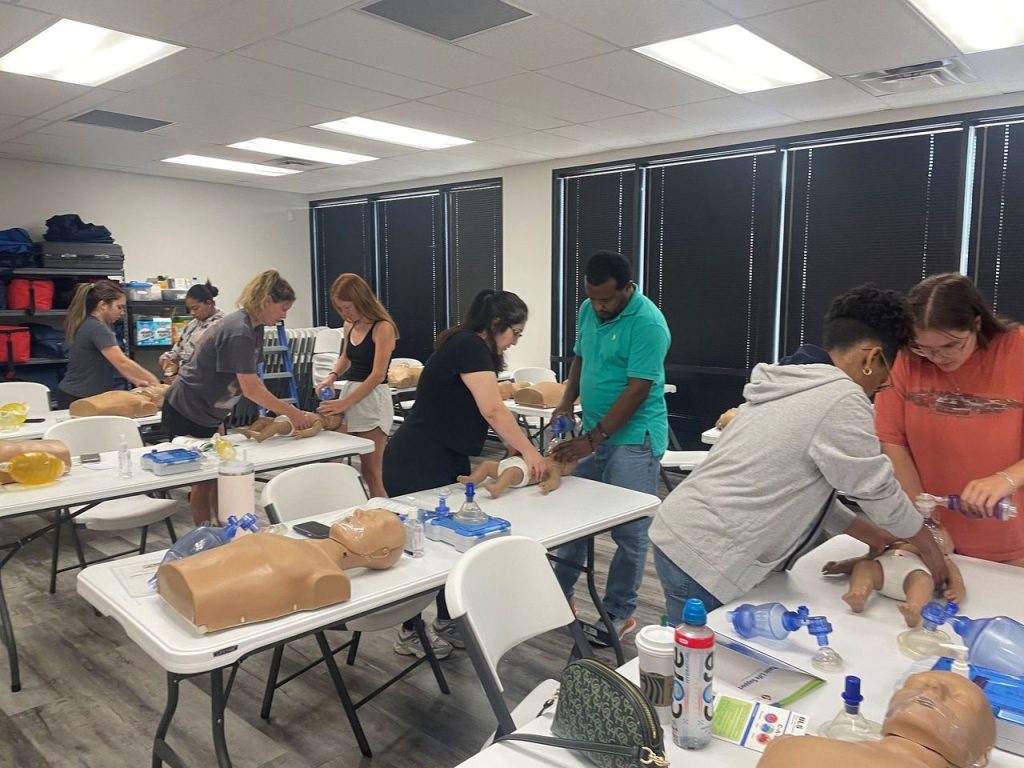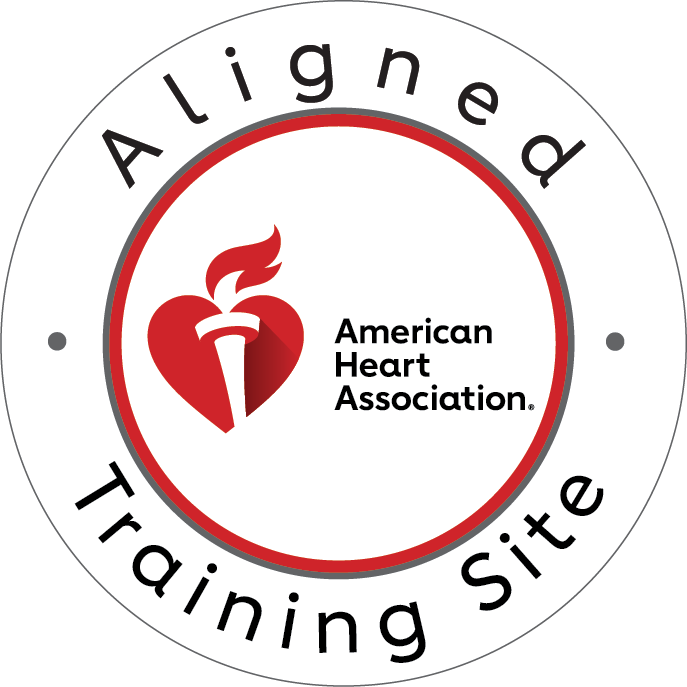I. Understanding the AHA Skills Check
The American Heart Association (AHA) is a renowned nonprofit organization dedicated to fighting heart disease and stroke, promoting cardiovascular health, and saving lives. One of the AHA’s crucial initiatives is providing high-quality training in lifesaving skills such as cardiopulmonary resuscitation (CPR) and advanced cardiac life support. At the core of this training is the AHA Skills Check, a vital component in ensuring that healthcare providers and laypersons alike are competent in these critical skills.
In today’s fast-paced medical environment, the ability to respond quickly and effectively to cardiac emergencies can mean the difference between life and death. Whether you’re a healthcare professional or a concerned citizen, understanding the AHA Skills Check process is essential for maintaining your lifesaving abilities and potentially making a crucial difference in someone’s life.
II. AHA Skills Check: An Overview
The AHA Skills Check is a standardized assessment designed to evaluate an individual’s proficiency in various lifesaving techniques. It serves as a practical examination that complements the theoretical knowledge gained through AHA courses. The primary purpose of the Skills Check is to ensure that participants can effectively apply their knowledge in real-world scenarios, demonstrating the hands-on skills necessary to respond to cardiac emergencies.
This assessment is not just a formality; it’s a critical step in verifying that individuals possess the competence and confidence to act decisively in high-pressure situations. The AHA Skills Check plays a pivotal role in maintaining the high standards of care that the AHA is known for, ensuring that those who complete their certifications are truly prepared to save lives.
III. Components of AHA Skills Check
The AHA Skills Check consists of two main components:
- Knowledge Assessment: While the primary focus is on practical skills, the Skills Check often begins with a brief review of key concepts. This may involve answering questions about proper techniques, emergency protocols, or scenario-based decision-making. This component ensures that participants have a solid theoretical foundation to support their practical skills.
- Hands-on Skills Demonstration: The core of the AHA Skills Check is the hands-on demonstration of lifesaving techniques. Participants are required to perform various skills on mannequins or simulated patients, demonstrating their ability to:
- Assess the scene for safety
- Check for responsiveness
- Activate the emergency response system
- Perform high-quality CPR
- Use an automated external defibrillator (AED) correctly
- Demonstrate proper rescue breathing techniques
- Execute other skills specific to their certification level (e.g., advanced cardiac life support procedures for healthcare providers)
During this demonstration, certified AHA instructors closely observe and evaluate the participant’s performance, ensuring that each skill is executed correctly and effectively.
IV. Types of Skills Checks
The AHA offers Skills Checks for various certifications, each tailored to specific needs and roles:
- Basic Life Support (BLS): This Skills Check is designed for both healthcare professionals and laypeople. It covers essential lifesaving techniques including high-quality CPR, use of AEDs, and relief of choking for adults, children, and infants.
- Advanced Cardiovascular Life Support (ACLS): Aimed at healthcare providers, this Skills Check evaluates advanced skills in managing cardiac arrest, acute coronary syndromes, stroke, and other cardiovascular emergencies. It includes assessment of rhythm recognition, pharmacology, and team dynamics.
- Pediatric Advanced Life Support (PALS): This specialized Skills Check focuses on the unique aspects of treating infants and children in emergency situations. It covers pediatric assessment, airway management, vascular access, and resuscitation team concepts.
- First Aid: While less intensive than BLS or ACLS, the First Aid Skills Check ensures competency in handling common emergencies such as bleeding control, wound care, and recognizing life-threatening conditions.
V. Process of AHA Skills Check
The AHA Skills Check follows a structured process to ensure thorough evaluation:
- Preparation: Participants review course materials and practice skills before the check. Many choose to attend a refresher course or use online resources provided by the AHA.
- Demonstration: During the Skills Check, participants perform required skills on mannequins or in simulated scenarios. They’re expected to demonstrate proper technique and decision-making.
- Evaluation: AHA-certified instructors assess performance using standardized checklists. They look for accuracy, efficiency, and adherence to current guidelines.
- Certification: Upon successful completion, participants receive their AHA certification card, valid for two years. This card is recognized across the United States and in many international settings.
VI. Benefits of AHA Skills Check
The Skills Check process offers several important benefits:
- Ensuring Competency: It verifies that individuals can apply their knowledge effectively in practical situations.
- Maintaining Up-to-Date Knowledge: As guidelines evolve, the Skills Check ensures practitioners are current with the latest best practices.
- Improving Patient Outcomes: By maintaining high standards of care, the Skills Check contributes to better survival rates and outcomes in emergencies.
VII. Where to Get AHA Skills Check: Spotlight on CPR Memphis
For those seeking high-quality AHA Skills Check and CPR training in the Memphis area, CPR Memphis stands out as an excellent option.
- Introduction to CPR Memphis: CPR Memphis is an American Heart Association certified training site, dedicated to providing top-notch lifesaving skills education to healthcare professionals and community members alike.
- Courses Offered: CPR Memphis offers a comprehensive range of AHA-certified courses, including:
- Basic Life Support (BLS) for Healthcare Providers
- Advanced Cardiovascular Life Support (ACLS)
- Pediatric Advanced Life Support (PALS)
- CPR and First Aid for community members
Advantages of Training with CPR Memphis:
- AHA-certified training site: Ensuring all courses meet the rigorous standards set by the American Heart Association.
- Stress-free, hands-on classes: CPR Memphis prioritizes a comfortable learning environment with ample opportunity for practical skills development.
- Initial certifications and renewals available: Whether you’re new to CPR or need to renew your existing certification, CPR Memphis has you covered.
Why CPR Memphis is the “Best CPR in Memphis”: CPR Memphis prides itself on delivering exceptional training experiences. Their instructors are experienced professionals who not only teach the skills but also provide real-world context. The hands-on approach ensures that students leave feeling confident in their abilities to respond in emergency situations.
VIII. Conclusion
- Recap of AHA Skills Check Importance: The American Heart Association Skills Check is a crucial component in ensuring the competency of individuals in lifesaving techniques. It goes beyond theoretical knowledge, verifying practical skills that can make a real difference in emergency situations.
- Encouragement to Maintain Current Certifications: Given the critical nature of these skills and the ongoing updates to best practices, it’s essential to keep your certifications current. Regular participation in Skills Checks not only renews your certification but also refreshes your abilities, keeping you prepared to act when it matters most.
- Call to Action: For those in the Memphis area looking to obtain or renew their AHA certifications, CPR Memphis offers an excellent opportunity. Their stress-free, hands-on approach to training, combined with their status as an AHA-certified training site, makes them an ideal choice for healthcare professionals and community members alike.
Remember, the skills you learn and maintain through AHA certifications and Skills Checks could one day help you save a life. Whether you’re a healthcare professional or a concerned citizen, staying current with these vital skills is one of the most important things you can do to be prepared for emergencies.





